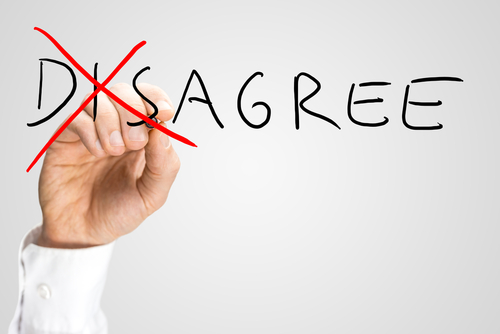5.уЮАуюаУђЁТЋѕт║ћ
The sleeper effectis the increased impact of a persuasive message over time. The more time that passes after someone has been exposed to a message, the more their attitude will be influenced by it. This may seem counter-intuitive, and in fact it only happens under certain conditions. The persuasive message has to be a major one to get our attention and to stay there, and it has to be accompanied by a discounting cue, like a low credibility source or a message disclaimer. This arouses the suspicion of the truth of the message, which suppresses any immediate change or dismisses it as propaganda. However, over time people do tend to be persuaded, because the message starts spreading and it is no longer associated with the untrustworthy source.
уЮАуюаУђЁТЋѕт║ћТў»ТїЄжџЈуЮђТЌХжЌ┤ТјеуД╗№╝їУ»┤ТюЇТђДС┐АТЂ»уџётй▒тЊЇС╝џСИЇТќГтбътіасђѓС║║С╗гуЪЦТЎЊС┐АТЂ»тљју╗ЈУ┐ЄуџёТЌХжЌ┤УХіжЋ┐№╝їтЁХТђЂт║дт░▒УХіС╝џУбФТЅђТјЦТћХуџёС┐АТЂ»тй▒тЊЇсђѓУ┐ЎтљгУхиТЮЦС╝╝С╣јТюЅуѓ╣тЈЇтИИ№╝їС║Іт«ъСИі№╝їС╣ЪтЈфтюеуЅ╣т«џуџёТЮАС╗ХСИІ№╝їУ┐ЎуДЇТЃЁтєхТЅЇС╝џтЈЉућЪсђѓт░йу«АжѓБС║ЏТюЅУ»┤ТюЇтіЏуџёС┐АТЂ»ТЅЇТў»ТѕЉС╗гуџёСИ╗УдЂтЁ│Т│еуѓ╣№╝їСйєСИјС╣ІуЏИС╝┤уџёт┐ЁуёХУ┐ўТюЅТіўТЅБС┐АТЂ»№╝їСЙІтдѓтЈ»С┐Ат║дСйјуџёС┐АТЂ»ТЮЦТ║љТѕќУђЁтЁЇУ┤БтБ░ТўјсђѓУ┐ЎСй┐тЙЌС║║С╗гт»╣С┐АТЂ»уџёуюЪт«ъТђДТюЅТЅђТђђуќЉ№╝їУ┐ЎуДЇТђђуќЉтЈЇУђїтЈ»С╗ЦтЈўТѕљСИђуДЇт«БС╝аУи»тЙё№╝їТЂ░тЦйтЈ»С╗ЦТіЉтѕХС┐АТЂ»тЇ│тЈўСИјТХѕТЋБуџётЈЉућЪсђѓуёХУђї№╝їжџЈТЌХжЌ┤уџёТјеуД╗№╝їС║║С╗гС╝џТИљТИљУбФУ»┤ТюЇ№╝їтЏаСИ║У┐Ўу▒╗С┐АТЂ»т╝ђтДІт╣┐СИ║С╝аТњГ№╝їт╣ХСИћтњїжѓБСИфСИЇтЈ»жЮауџёС┐АТЂ»Т║љСИЇтєЇТюЅС╗╗СйЋтЁ│УЂћсђѓ

In essence, the sleeper effect shows that people are convinced by arguments until they see that the source of the message cannot be trusted because of their vested interests and agendas. However, this discounting cue isn't typically processed very thoroughly, so over time people forget that they discounted the information. When enough time has passed, all they will remember is the content of the persuasive message.
т«ъУ┤еСИі№╝їуЮАуюаУђЁТЋѕт║ћУАеТўј№╝їС║║С╗гС╝џтЏатЁХТЌбтЙЌтѕЕуЏітњїтиЦСйюУђїСИђуЏ┤уЏИС┐АТЪљС║ЏУ«║уѓ╣№╝їуЏ┤УЄ│С╗ќС╗гтЈЉуј░С┐АТЂ»ТЮЦТ║љуџёуА«СИЇтЈ»С┐АТЅЇС╝џСйюуйбсђѓУЎйуёХТіўТЅБС┐АТЂ»жђџтИИжџЙС╗ЦУбФтй╗т║Ћтцёуљє№╝їСйєжџЈуЮђТЌХжЌ┤уџёТјеуД╗№╝їС║║С╗гт░▒С╝џжђљТИљт┐ўУ«░С╗ќС╗гТЏЙУ┤еуќЉУ┐ЎС║ЏС┐АТЂ»уџёуюЪт«ъТђДсђѓУХ│тцЪжЋ┐уџёТЌХжЌ┤У┐Єтј╗тљј№╝їС║║С╗гУ«░тЙЌуџёт░▒тЈфТюЅУ»┤ТюЇТђДС┐АТЂ»уџётєЁт«╣С║єсђѓ
Think about a time when you heard an outlandish story from a friend who is prone to over-exaggeration. When you hear the story the first time, you may dismiss it as untrue because you don't trust the source. However, after a few months you may forget who told you the story and only remember the content of the story, therefore believing it to be true.
У»ЋТЃ│СИђСИІ№╝їСйаС╗јСИђСИфтќюТгбтцИтцИтЁХУ░ѕуџёТюІтЈІжѓБжЄїтљгтѕ░С║єСИђСИфУЇњУ»ъСИЇу╗ЈуџёТЋЁС║ІсђѓСйауггСИђТгАтљгтѕ░У┐ЎСИфТЋЁС║ІТЌХ№╝їтЏаСИ║тЁХТЮЦУЄфС║јтЈ»С┐Ат║дСйјуџёС┐АТЂ»Т║љ№╝їТЅђС╗ЦСйат╣ХСИЇуЏИС┐Ат«ЃсђѓуёХУђї№╝їтЄаСИфТюѕтљј№╝їСйатЈ»УЃйт┐ўУ«░С║єТў»У░ЂУиЪСйаУ«▓уџёТЋЁС║І№╝їтЈфУ«░тЙЌТЋЁС║ІуџётєЁт«╣№╝їС╗јТГцт░▒С╝џуЏИС┐АУ┐ЎСИфТЋЁС║ІТў»уюЪуџёС║єсђѓ
In terms of persuasion, the sleeper effect is most powerful when the message is discounted after it's received. For instance, imagine reading a magazine article which suggests a great vacation resort, only to find at the end of the article in small print that it's actually an advertisement paid for by the resort itself. The information may be discounted up front, but over time the sleeper effect will come into play, and all you will remember is hearing about the pristine beaches and gorgeous accommodations at the resort.
т░▒У»┤ТюЇтіЏтцДт░ЈУђїУеђ№╝їуЮАуюаУђЁТЋѕт║ћтюеС┐АТЂ»УбФТјЦТћХт╣ХтцДТЅЊТіўТЅБтљјт»╣С║║С║ДућЪуџётй▒тЊЇТюђСИ║ТўјТўЙсђѓСИЙСИфСЙІтГљТЮЦУ»┤№╝їСйаТГБтюежўЁУ»╗ТЮѓт┐ЌСИіуџёСИђу»ЄТќЄуФа№╝їСИіжЮбТјеУЇљС║єСИђСИфтЙѕТБњуџёт║дтЂЄУЃютю░№╝їСйєСйатЇ┤тЈЉуј░тюеТќЄуФауџёТюФт░ЙТюЅСИђТјњт░ЈтГЌ№╝їТГБТў»ТГцтю░УЄфТјЈУЁ░тїЁтЂџуџёт«БС╝асђѓСИђт╝ђтДІСйатЈ»УЃйС╝џТђђуќЉС┐АТЂ»уџётЈ»С┐Ат║д№╝їСйєжџЈуЮђТЌХжЌ┤уџёТјеуД╗№╝їуЮАуюаУђЁТЋѕт║ћт░єтЈЉТїЦСйюуће№╝їСйат░▒тЈфС╝џУ«░тЙЌУ┐ЎСИфт║дтЂЄУЃютю░ТІЦТюЅтјЪућЪТђЂуџёТхиТ╗ЕтњїтЇјСИйуџёСйЈт«┐уј»тбЃ№╝їУЄ│С║јтЁХС╗ќ№╝їТЌЕт░▒ТіЏУ»ИУёЉтљјС║єсђѓ
4.тЈЇжЮбУ«║У»Ђ

The most persuasive arguments are those that present both sides of an issue and then refute the Рђўwrong' argument. This has been found to be a more successful tactic than simply presenting one side to an argument as if there was no alternative. Researcher Daniel O'Keefe collected the results of 107 different studies which were conducted over 50 years and published his findings in "How to Handle Opposing Arguments in Persuasive Messages: A Meta-Analytic Review of the Effects of One-Side and Two-Sided Messages". He found that across all types of persuasive messages and all types of audiences, two-sided arguments were more persuasive than their one-sided counterparts.
у║»у▓╣т▒Ћуц║тЇЋТќ╣У«║ТЇ«С╝џу╗ЎС║║С╗ЦСйаС╝╝С╣јтѕФТЌажђЅТІЕС╣ІТёЪ№╝їСИЇУ┐Є№╝їтЁѕтЉѕуј░жЌ«жбўуџёСИцжЮбТђДУђїтљјтєЇжЕ│ТќЦ"жћЎУ»»"У«║уѓ╣№╝їУ┐ЎуДЇУ░ІуЋЦС╝џТЏ┤СИ║ТѕљтіЪ№╝їС╣ЪТюђтЁиУ»┤ТюЇтіЏсђѓСИ╣т░╝т░ћтЪ║тцФ№╝ѕDaniel O'Keefe№╝ЅуаћуЕХтЉўТћХжЏєС║є107С╗йти▓уаћуЕХУХЁУ┐Є50т╣┤уџёСИЇтљїУ»Йжбўуџёу╗ЊТъю№╝їУ«цуюЪтѕєТъљтљјтЈЉУАеС║єС╗ќУЄфти▒уџёУ░ЃТЪЦу╗ЊТъю№╝џ"тдѓСйЋућетЁиТюЅУ»┤ТюЇтіЏуџёС┐АТЂ»тцёуљєтЈЇТќ╣У«║ТЇ«№╝џтЇЋТќ╣тњїтЈїТќ╣С┐АТЂ»тй▒тЊЇуџётЁЃтѕєТъљтЏъжАЙ"сђѓС╗ќтЈЉуј░№╝їу║хУДѕтЁежЃеТюЅУ»┤ТюЇтіЏуџёС┐АТЂ»у▒╗тъІтњїТЅђТюЅтЈЌС╝Ќу▒╗тъІ№╝їтЈїТќ╣У«║ТЇ«Т»ћтЇЋТќ╣УАЦтЁЁТЏ┤ТюЅУ»┤ТюЇтіЏсђѓ
We've all seen politicians use counter-arguments to their advantage, and they are a key part of successful debating as well. It has been shown to be a powerful tactic regardless of if your audience already supports your idea or rejects it before you begin your argument. The most important part of using counter-arguments to your advantage is to refute the opposing view. It doesn't appear to matter whether counter-arguments are introduced at the beginning or end of an argument or whether they are sprinkled in throughout. As long as they are refuted, they will help you to persuade your audience.
Тћ┐т«бС╗гжЃйтќёС║јтѕЕућетЈЇжЮбУ«║ТЇ«ТЮЦтиЕтЏ║тЁХС╝ўті┐тю░СйЇ№╝їУђїтюеСИђтю║ТѕљтіЪуџёУЙЕУ«║жЄї№╝їтЈЇжЮбУ«║ТЇ«С╣ЪТў»жЄЇУдЂуџёу╗ёТѕљжЃетѕєсђѓТЌаУ«║СйауџётЈЌС╝ЌСИђт╝ђтДІТў»Тћ»ТїЂУ┐ўТў»тЈЇт»╣СйауџёУДѓуѓ╣№╝їУ┐ЎжЃйТў»СИђуДЇТъЂТюЅтіЏуџёуГќуЋЦсђѓућетЈЇжЮбУ«║ТЇ«ТЮЦТћ»ТњЉСйауџёУДѓуѓ╣№╝їтЁХтЁ│жћ«т░▒тюеС║јжЕ│ТќЦт»╣Тќ╣УДѓуѓ╣сђѓТЌаУ«║Тў»тюеУЙЕУ«║уџёт╝ђуФ»сђЂу╗Њт░Йт╝Ћуће№╝їУ┐ўТў»тЁХС╗ќС╗╗СйЋТЌХжЌ┤уѓ╣т╝ЋућетЈЇжЮбУ«║ТЇ«№╝їУ┐ЎжЃйСИЇжЄЇУдЂ№╝їжЄЇУдЂуџёТў»№╝їтЈфУдЂућеС╣ІжЕ│тђњС║єт»╣Тќ╣уџёУДѓуѓ╣№╝їт«ЃС╗гСЙ┐тЈ»тіЕСйаУ»┤ТюЇСйауџётЈЌС╝Ќсђѓ
3.ТЮЃтеЂТ│ЋтѕЎ

The rule of authority posits that when people are asked to do something by someone they view as an authority, most will obey. This is often true even if the order violates their consciences. The famous Milgram experimentinvestigated this theory by asking study participants to help test other people's ability to learn. Participants were instructed that "learners" in an adjoining room were tasked with memorizing lists, and that the participants' job was to shock the learners when they made a mistake. The "learners" were actually a knowing party to the experiment and they didn't actually receive any shocks. The study participants were seated at switches which they believed sent varying levels of shocks to the "learners" who could be viewed through a glass window in an adjoining room. The experimenter, who appeared to be an authority, told the participants to administer increasing levels of shocks as the "learners" cried out in mock pain, eventually pretending to faint. Although the participants grew increasingly nervous and agitated, over two-thirds of them administered the highest level of shocks when the experimenter ordered them to do so.
ТЮЃтеЂТ│ЋтѕЎ№╝ѕrule of authority№╝ЅтЂЄт«џС║єУ┐ЎТаиСИђуДЇТЃЁтєх№╝џтйЊС║║С╗гУ«цСИ║ТЪљС║║ТюЅТЮЃтеЂТЌХ№╝їтцДжЃетѕєС║║жЃйС╝џжЂхС╗јТГцС║║уџёУдЂТ▒ѓтј╗тЂџСИђС║ЏС║ІТЃЁсђѓУ┐ЎСИђУ«║ТќГтЙђтЙђТў»ТГБуА«уџё№╝їтЇ│Сй┐ТГцС║║уџётЉйС╗цТюЅУ┐ЮС╗ќС╗гуџётєЁт┐ЃТЌХС║дтдѓТГцсђѓУЉЌтљЇуџёу▒│т░ћТа╝С╝дт«ъжфїжђџУ┐ЄУдЂТ▒ѓуаћуЕХт»╣У▒АтЇЈтіЕт«ъжфїС║║тЉўТЮЦТхІУ»ЋтѕФС║║тГдС╣аУЃйтіЏуџёТќ╣т╝ЈтЇ░У»ЂС║єУ┐ЎСИђуљєУ«║сђѓт«ъжфїСИГ№╝їтЈѓСИјУђЁУбФт«ЅТјњтюе"тГдС╣аУђЁ"жџћтБЂуџёТѕ┐жЌ┤жЄї№╝їС╗ќС╗гуџёС╗╗тіАТў»тйЊ"тГдС╣аУђЁ"УЃїУ»хТИЁтЇЋуі»жћЎТЌХућхтЄ╗С╗ќС╗г№╝їСйєтЁХт«ъ"тГдућЪ"Тў»ућ▒уаћуЕХС║║тЉўтЂЄтєњуџё№╝їС╗ќС╗гт«ъжЎЁСИіСИЇС╝џуюЪуџёУбФућхтѕ░№╝їУђїтЈѓСИјУђЁт»╣ТГцТ»ФСИЇуЪЦТЃЁсђѓтЈѓСИјУђЁС╗гУбФт«ЅТјњтЮљтюеућхтЄ╗т╝ђтЁ│тЅЇ№╝їС╗ќС╗гуюЪуџёС╗ЦСИ║тЈфУдЂУДдтіет╝ђтЁ│№╝їт░▒тЈ»С╗Цт»╣тЈфжџћуЮђСИђжЮбуј╗уњЃтбЎуџё"тГдућЪ"ТќйС╗ЦСИЇтљїуеІт║дуџёућхтЄ╗сђѓтйЊ "тГдућЪ"тЂЄУБЁтЙѕуЌЏУІдтю░тќітЈФ№╝їтЈѓСИјУђЁС╗гСИЇт┐ЇтєЇСИІТЅІТЌХ№╝їт«ъжфїС║║тЉўт░▒УАеуј░тЙЌтЙѕТЮЃтеЂ№╝їт╣ХтЉіУ»ЅтЈѓСИјУђЁУдЂтбътіаућхтЄ╗уеІт║д№╝їТюђу╗ѕ№╝ї"тГдућЪ"тЂЄУБЁТЎЋтђњсђѓТГцжЌ┤№╝їУЎйуёХтЈѓСИјУђЁУХіТЮЦУХіу┤Дт╝атњїуёдУЎЉ№╝їСйєтйЊт«ъжфїС║║тЉўУдЂТ▒ѓтЈѓСИјУђЁТќйС╗ЦТюђжФўуеІт║дуџёућхтЄ╗ТЌХ№╝їСИЅтѕєС╣ІС║їуџёС║║У┐ўТў»У┐ЎС╣ѕтЂџС║єсђѓ
When someone appears to have authority, special knowledge, impressive credentials, or simply carries an air of confidence, they are typically seen as more credible and therefore have more power over directing the attitudes and behaviors of others. When evaluating authority, people often look for professional titles such as Dr., Professor or President. Clothing is also a signifier, with army uniforms, police officer uniforms, white lab coats and even smart business suits conveying authority. Other symbols of authority include badges, guns, executive letterhead, even expensive watches.
тйЊСИђСИфС║║ТюЅтеЂС┐АсђЂСИЊСИџуЪЦУ»єсђЂС╗цС║║тЈ╣ТюЇуџёУхётјєТѕќТў»уЅ╣тѕФУЄфС┐АТЌХ№╝їС╗ќС╗гжђџтИИжЃйС╝џуюІУхиТЮЦТЏ┤тЈ»С┐А№╝їУ┐ЏУђїУЃйт»╣С╗ќС║║уџёТђЂт║дтњїУАїСИ║С║ДућЪТЏ┤т╝║уџётй▒тЊЇтіЏсђѓтюеУ»ёт«џТЮЃтеЂТЌХ№╝їС║║С╗гтИИт»╗ТЅЙСИЊСИџтц┤УАћ№╝їтдѓтЇџтБФсђЂТЋЎТјѕТѕќТђ╗у╗ЪуГЅсђѓтљїТЌХ№╝їУАБуЮђС╣ЪТў»СИђуДЇТаЄт┐Ќ№╝їтєЏУБЁсђЂУГдТюЇсђЂуЎйтцДУцѓсђЂугћТї║уџётЋєтіАтЦЌУБЁС╣ЪжЃйТЌХтѕ╗С╝ажђњуЮђТЮЃтеЂуџёУ«»ТЂ»сђѓТГцтцќтЙйуФасђЂТъфТћ»сђЂтЇ░ТюЅУАїТћ┐тГЌТаиуџёС┐Ау║ИС╣ЃУЄ│тљЇУАе№╝їС╣ЪжЃйТў»ТЮЃтеЂуџёТаЄт┐Ќсђѓ
The rule of authority gives people a shortcut to making decisions based on what they perceive to be true based on their assumptions. Because it is impossible to methodically evaluate every element of every situation, people have to rely on shortcuts in order to make decisions based on limited information. Symbols of authority help people to decide who to trust to guide and protect us.
тюеС║║С╗гтЪ║С║јтЁХтЂЄУ«ЙУ«цСИ║ТЪљуДЇТЃЁтєхуюЪт«ъуџёТЃЁтєхСИІ№╝їТЮЃтеЂТ│ЋтѕЎтЈ»С╗ЦСй┐тЁХт┐ФжђЪтЂџтЄ║тє│т«џсђѓтЏаСИ║С║║С╗гСИЇтЈ»УЃйТюЅТЮАСИЇу┤ітю░У»ёт«џТ»ЈуДЇТЃЁтєхСИІуџёТ»ЈСИфУдЂу┤а№╝їСИ║С║єТа╣ТЇ«ТюЅжЎљуџёС┐АТЂ»СйютЄ║тє│т«џ№╝їС╗ќС╗гСИЇтЙЌСИЇСЙЮжЮаТЮЃтеЂТ│ЋтѕЎТЈљСЙЏуџёТЇитЙёсђѓУђїТЮЃтеЂуџёТаЄт┐ЌтѕЎтЈ»тіЕС║║С╗гтє│т«џжђЅТІЕуЏИС┐АУ░ЂтњїУ«ЕУ░ЂТЮЦС┐ЮТіцС╗ќС╗гсђѓ
2.The Norm of Reciprocity(Rule of Reciprocity)
2.С║њТЃат┐Ѓуљє

The norm of reciprocity involves our social expectation and obligation to return favors done by others. Every single human culture trains their members in this unspoken rule.
С║њТЃат┐ЃуљєСИјТѕЉС╗гт»╣уцЙС╝џуџёТюЪТюЏсђЂтЏъждѕС╗ќС║║тќёСИЙуџёт┐ЃуљєТЂ»ТЂ»уЏИтЁ│№╝їТўЙуёХ№╝їТЌаУ«║уй«У║ФС║јСйЋуДЇТќЄтїќС╣ІСИГ№╝їС║║С╗гжЃйС╝џУбФУ┐ЎТЮАСИЇТѕљТќЄуџё"УДётѕЎ"Т┐АТЪЊсђѓ
Researchers Kunz and Woolcott mailed Christmas cards in a 1976 experiment that illustrated this idea. They chose 578 strangers out of the Chicago telephone directory and sent them Christmas cards in the mail. They received cards in return from 20 percent of the original sample. Some even included family pictures and detailed letters. Even though these people had never heard of Kunz and had no idea who he was, they felt obligated to send him a Christmas card since they received one from him.
1976т╣┤№╝їт┐ЃуљєтГдт«ХУЈ▓тѕЕТЎ«┬иТўєУїе№╝ѕPhillip Kunz№╝ЅСИјУ┐ѕтЁІт░ћ┬иС╝Їт░ћуДЉуЅ╣№╝ѕMichael Woolcott№╝ЅжђџУ┐Єжѓ«т»ётюБУ»ъУ┤║тЇАУ┐ЎСИђт«ъжфїУ»Ђт«ъС║єС║њТЃат┐ЃуљєсђѓС╗ќС╗гС╗јУіЮтіатЊЦтИѓуџёућхУ»ЮтљЇтйЋСИГжђЅтЄ║578СИфжЎїућЪС║║№╝їу╗ЎУ┐ЎС║ЏС║║жѓ«т»ётюБУ»ъУ┤║тЇАсђѓТюЅ20%уџёС║║тЏът»ёС║єУ┤║тЇА№╝їућџУЄ│У┐ўТюЅС║║жЎёСИіС║єтЁет«ХудЈтЈіУ»ду╗єуџёС╣дС┐Асђѓт░йу«АУ┐ЎС║ЏС║║жЃйСИјТўєУїеу┤аТўДт╣│ућЪ№╝їСйєС╗ќС╗гС╝џУДЅтЙЌ№╝ї"тЈЌС║║ујФуЉ░"уљєт║ћ"тЏъС╗ЦСйЎждЎ"№╝їтЏаУђїтЏът»ёУ┤║тЇАсђѓ
Persuasive people can use this social norm to their advantage, by giving something to someone or doing something for someone, in order to obtain something that they want from that person. Think about someone at a beauty counter who gives you a free makeup application. You technically have no commitment to buy anything, but you likely feel an uncomfortable pressure to purchase something. Similarly, a salesperson might use the tactic of offering you a free item or an upgrade if you make a purchase. The item or upgrade may not even be anything you particularly want, but since they seem to be doing you a favor by offering it, you feel obligated to buy.
"У»┤т«б"С╗гУЃйСй┐У┐ЎСИђуцЙС║цУДётЙІСИ║тЁХТЅђуће№╝їС╗ќС╗гС╝џжђџУ┐ЄУхаС║ѕС╗ќС║║уЅЕтЊЂТѕќу╗ЎС║ѕС╗ќС║║тИ«тіЕуџёТќ╣т╝Ј№╝їС╗јт»╣Тќ╣У║ФСИіУјитЈќСИфС║║ТЅђжюђсђѓУ»ЋТЃ│СИђСИІ№╝їтйЊтїќтдєтЊЂСИЊТЪюуџёт»╝У┤Гт░ЈтДљуЃГТЃЁтю░у╗ЎСйаУ»ЋућеУБЁТЌХ№╝їУЎйуёХТюфт╝║У┐ФСйаС╣░С╗╗СйЋСИюУЦ┐№╝їСйєСйатЙѕтЈ»УЃйС╝џтЏаСИЇтЦйТёЈТђЮУђїУ┤ГС╣░СИђС║їсђѓтљїТаитю░№╝їжћђтћ«тЉўС╣ЪС╝џтѕЕућеУ┐ЎСИђТіђтиДсђѓС╗ќС╗гС╝џтљЉСйаТЅ┐У»║№╝їСИђТЌдСйаУ┤ГС╣░С║ДтЊЂ№╝їтљїТЌХт░▒С╝џУјитЙЌУхатЊЂТѕќтЁЇУ┤╣тЇЄу║ДТюЇтіАсђѓУЎйуёХСйаТюфт┐ЁжюђУдЂУ┐ЎС║Џ№╝їСйєућ▒С║јС║њТЃат┐ЃуљєСйюуЦЪ№╝їСйаС╝џУДЅтЙЌУЄфти▒т║ћУ»ЦТііС║ДтЊЂС╣░СИІТЮЦсђѓ
1.Conversion Theory of Minority Influence
1.С╝ЌС╗јт┐Ѓуљє

Conversion theory of minority influence maintains that if someone breaks the unanimity of the majority, it captures the majority's attentions and causes them to reconsider their arguments and reasoning. If the new opinion garnered from the minority is validated, then it could sway the majority. This change in opinion is more likely to stick since this type of validation leads to private acceptance. This is in contrast to their original opinion, which was the result of simply following the majority because it seemed easier or because there was no real alternative.
С╝ЌС╗јт┐ЃуљєТў»ТїЄтюеСИђСИфуЙцСйЊСИГ№╝їТЈљтЄ║Тќ░УДѓуѓ╣уџёт░ЈжЃетѕєС║║С╝џтй▒тЊЇТїЂтЈдСИђУДѓуѓ╣уџётцДжЃетѕєС║║№╝їС╗јУђїСй┐С╗ќС╗гжЄЇТќ░т«АУДєУЄфти▒уџёУ«║уѓ╣тЈіУ«║У»ЂсђѓтдѓТъюУ┐ЎСИђТќ░УДѓуѓ╣у╗ЈУ┐ЄУ«║У»Ђ№╝їтѕЄт«ътЈ»УАї№╝їтцДС╝ЌуџёуФІтю║тЈ»УЃйС╝џтЏаТГцУђїТћ╣тЈўсђѓС╣ІТЅђС╗ЦУ┐ЎСИђт»╣С╝ау╗ЪУДѓуѓ╣уџёжбаУдєТЏ┤ТўЊУбФтЮџТїЂ№╝їТў»тЏаСИ║тюеУ«║У»ЂУ┐ЄуеІСИГ№╝їС║║С╗гС╝џтЈЉУЄфтєЁт┐Ѓтю░У«цтљїУ┐ЎСИђТќ░УДѓуѓ╣сђѓУЎйуёХУ┐ЎСИјС║║С╗гС╗ЁтЄ║С║јС╗јС╝Ќт┐ЃуљєТїЂТюЅуџёТюђтѕЮУДѓуѓ╣ТѕфуёХуЏИтЈЇ№╝їСйєтйЊТЌХтЂџтЄ║У┐ЎТаижђЅТІЕ№╝їТў»ућ▒С║јжџЈтцДТхЂуюІСИітј╗ТЏ┤т«╣ТўЊТѕќУђЁС╣ІтЅЇТ▓АТюЅтЁХС╗ќтѕЄт«ътЈ»УАїуџёжђЅТІЕсђѓ
In order to make your minority opinion most powerful and likely to sway others, it needs to be expressed with consistency and with confidence. It also needs to appear reasonable and unbiased. When trying to implement the conversion theory of minority influence, you need to resist the natural social pressure from the majority. Position yourself as the voice of reason, while steadily subverting your target people and convincing them to join your side.
тдѓТъюСйатИїТюЏУЄфти▒уџёУДѓуѓ╣Тјитю░ТюЅтБ░сђЂжюЄТЁЉтЁетю║№╝їт░▒т┐ЁжА╗тЂџтѕ░У«║уѓ╣тљѕТЃЁтљѕуљєсђЂТ»ФТЌатЂЈжбЄ№╝їУАеУ┐░УЃИТюЅТѕљуФ╣сђЂтЅЇтљјСИђУЄ┤сђѓтйЊуёХС║є№╝їтюетѕЕућеС╝ЌС╗јт┐ЃуљєТЌХ№╝їСйаждќтЁѕУдЂжАХСйЈТЮЦУЄфтцДС╝ЌуџёуцЙС╝џтјІтіЏсђѓСИЇтдеТііУЄфти▒тйЊСйюуюЪуљєуџёС╗БУеђС║║№╝їС╗јт«╣СИЇУ┐Ф№╝ї"уе│ТГЦтЄ║тЄ╗"№╝їУ»┤ТюЇт»╣Тќ╣УхътљїУЄфти▒уџёУДѓуѓ╣сђѓ
With the power of persuasion, you can learn how to take control of the circumstances around you. In today's competitive world, knowing the tips and tricks to getting what you want will help you succeed. Whether you're dealing with your colleagues, your spouse, your friends or your clients, these psychological tips will help you understand your interactions and use them for your benefit. Try employing some of them today, and you'll be amazed at how effective they can be. Just remember, always use your powers for good; not evil!
жђџУ┐ЄтГдС╣атдѓСйЋУ┐љућеУ»┤ТюЇтіЏТіђтиД№╝їСйат░▒УЃйТііТјДтЉетЏ┤уџёуј»тбЃ№╝їУ┐љуГ╣тИит╣ё№╝їУЙЙТѕљТЅђТё┐сђѓТѕЉС╗гУ║ФтцётдѓС╗іУ┐ЎСИфуФъС║ЅуЕ║тЅЇТ┐ђуЃѕуџёуцЙС╝џ№╝їтГдС╝џУ┐љућеСИіУ┐░ТіђтиДтј╗УјитЈќСИфС║║ТЅђжюђ№╝їт«џУЃйтіЕТѕЉС╗гУх░тљЉТѕљтіЪсђѓТЌаУ«║Тў»жЮбт»╣т«бТѕисђЂтљїС║І№╝їУ┐ўТў»ТюІтЈІсђЂуѕ▒С║║№╝їУ┐ЎС║Џт┐ЃуљєтГдт░ЈУ┤┤тБФжЃйТюЅтіЕС║јтіаТи▒ТѕЉС╗гт»╣УЄфти▒С║║жЎЁтЁ│у│╗уџёуљєУДБтњїТііТјД№╝їС╗јУђїтѕЕућет«ЃС╗гУЙЙтѕ░УЄфти▒уџёуЏ«уџёсђѓС╗ітцЕт░▒ТііУ┐ЎС║ЏтдЎТІЏућеСИітљД№╝їт«ЃС╗гуџёТЋѕућеСИђт«џС╝џУ«ЕСйаТЃітЉєуџё№╝їСйєТў»тѕЄУ«░УдЂућетюеТГБжЂЊСИісђѓ
т«АТаА:УљйТюѕ у╝ќУЙЉ:ТЕўтГљ ТЮЦТ║љ№╝џтЅЇтЇЂуйЉ

















